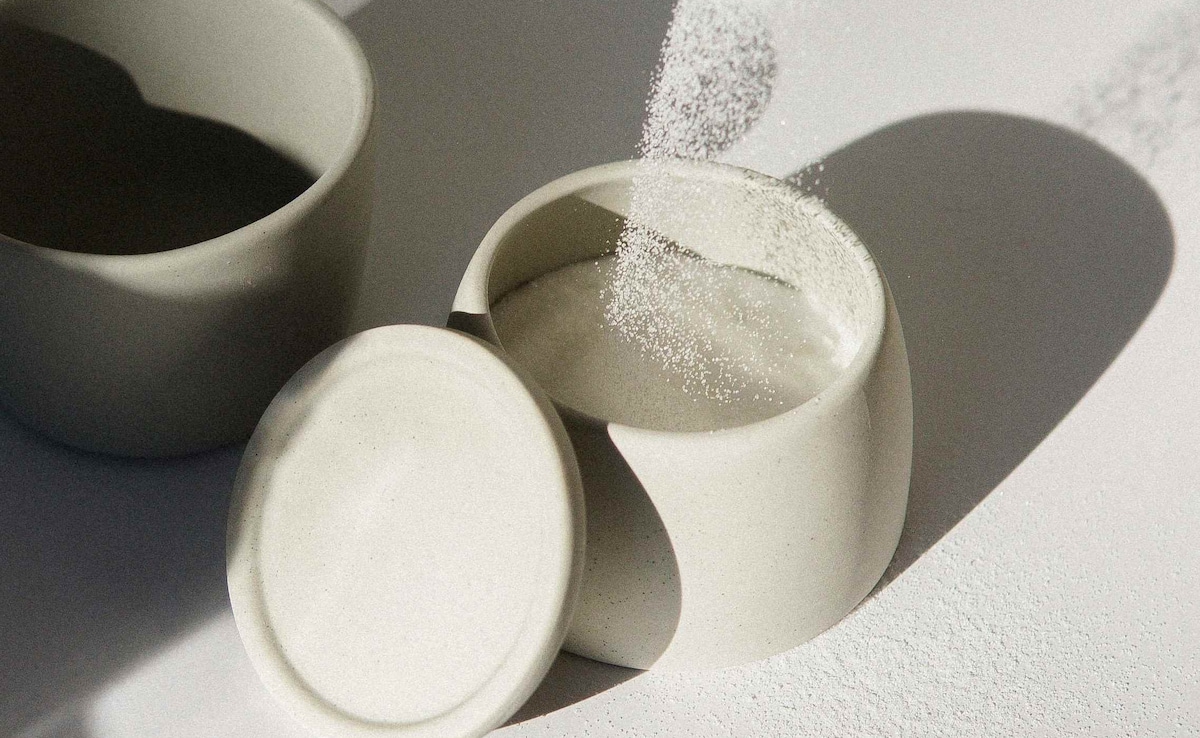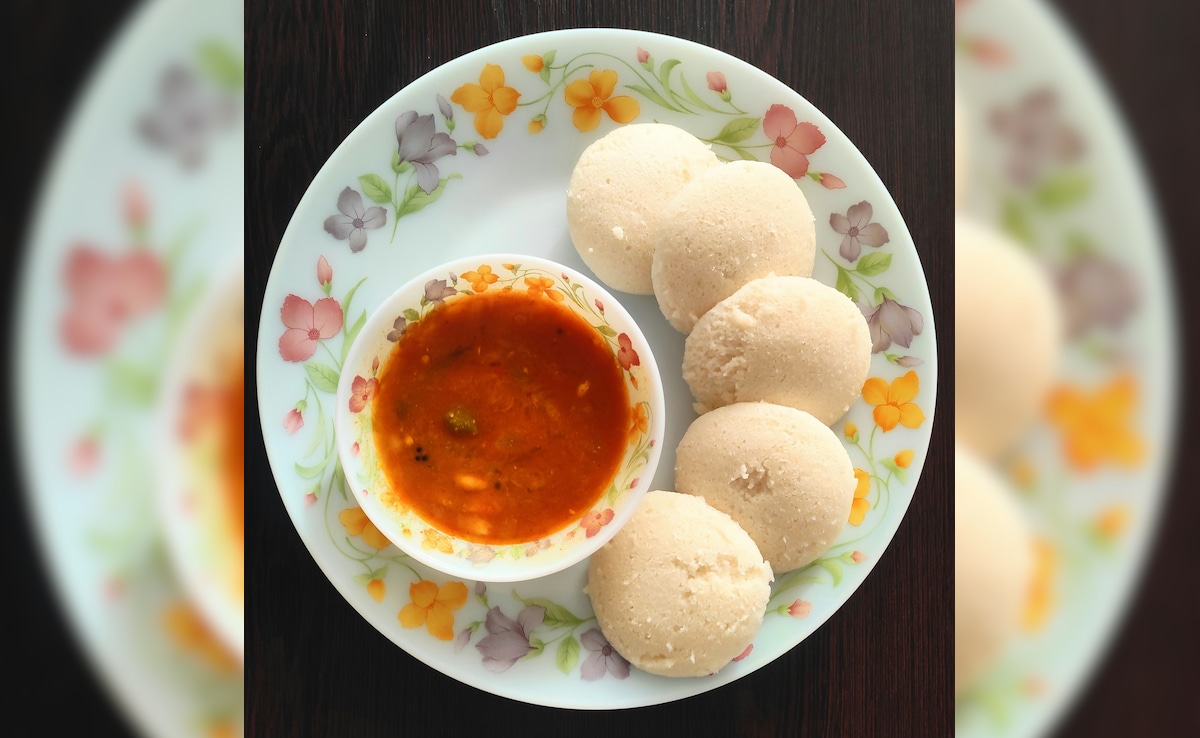
If there's a beauty secret that is suddenly getting the attention it deserves, it's the gut. Known as the second brain, the gut might be the solution to all your beauty and weight loss woes. From not losing weight easily to acne, studies have shown that the gut is responsible for all of these.
A healthy gut means a healthy you.
This realisation and awareness of keeping the gut healthy has led to a plethora of products, from gut sticks to supplements to fad diets, all aiming to ensure you're looking after your gut. In fact, one such diet that has made quite a buzz online is followed by Bollywood actor Ananya Panday, who says it has made her feel better.
Ananya Panday's Gut Cleanse Diet
In a recent interview with Hindustan Times, actress Ananya Panday said she feels more energetic after switching to a gut cleanse diet a couple of months ago.
"It has made a huge difference in my life. I've been very good with my meals and make sure to have my last meal by 7 pm. I don't eat after that. It has been a good change," she said.
What Is A Gut Cleanse Diet?
While some experts suggest that the term 'gut cleanse diet' is more of a marketing gimmick like the word 'superfood', others say it might actually benefit your gut.
For instance, dietician Vidhi Chawla, founder of FISICO Diet and Aesthetic Clinic, Delhi, tells NDTV, "It's important to note that the concept of a 'gut cleanse diet' isn't a well-defined clinical term. Instead, it often encompasses various approaches, from short-term liquid fasts and juice cleanses to diets emphasising specific foods or the elimination of others."
Dr Archana Batra, a dietician and certified diabetes educator, agrees, and adds, "A gut cleanse is not just about detoxing; it's about resetting your digestion and giving your gut a break from irritants."
According to her, this diet focuses on removing processed foods, sugar, dairy, gluten and alcohol, and eating whole foods such as brown rice, wheat, barley, ragi, oats and quinoa; high-fibre foods such as apples, bananas, broccoli, lentils, beans and chia seeds; and anti-inflammatory foods to cleanse the gut.

Sugar is a gut irritant
Photo Credit: Unsplash
Vidhi says that the underlying principle of this diet is often to give the digestive system a break and promote the growth of beneficial gut bacteria. Some approaches include consuming specific drinks or supplements believed to "flush out" the system.
How Can It Be Helpful?
Dietician Monika Manchanda, the founder of Diet Mantra by Monika, says the gut cleanse diet can be very helpful for people with:
IBS (Irritable Bowel Syndrome)
A recent 2024 study has shown that IBS patients have altered gut microbiota composition compared to healthy individuals, including reduced beneficial bacteria like Lactobacillus and Bifidobacterium, and increased potentially harmful bacteria such as Enterobacteriaceae. A gut cleanse diet might help you manage this.
Skin issues like acne or eczema
Several studies over the years have shown the gut-skin axis, meaning an imbalanced gut microbiome can contribute to skin inflammation and acne.
Digestive problems like gas, bloating, constipation
Changes in gut bacteria influence fermentation and metabolite production (e.g. gases like methane and hydrogen sulphide), which can worsen digestive discomfort. A gut cleanse diet might help with these issues.
Mental health imbalances like mood swings or brain fog
A healthy gut microbiome, with a balance of beneficial bacteria, can positively influence mood, while imbalances can contribute to mental health issues like anxiety and depression.
A healthy gut can also help you shed weight faster.
So, How To Do The Gut Cleanse Diet Right?
NDTV spoke to various experts and found that each of them has their own way of doing a gut cleanse diet, though the basics of food inclusion and exclusion remain the same.
Monika suggests starting your day with warm jeera or ajwain water, soaked methi seeds, or aloe vera juice.
She also recommends gut-friendly meals like boiled brown rice and fish curry, fresh salads, lightly cooked vegetables, whole grains like oats, ragi and bajra, and fruits like banana, papaya and apple. Include good fats like ghee, nuts and seeds, and fermented foods such as homemade curd, buttermilk, idli/dosa batter and kanji.

Idli, a fermented South Indian dish, can be beneficial for gut health. Photo Credit: Unsplash
Remember to stay hydrated with 8 to 10 glasses of water infused with lemon, mint or tulsi.
Other methods according to Vidhi for a gut cleanse diet include:
- Liquid fasts/juice cleanses: Consuming only fruit and vegetable juices or broths for a short period (1-3 days).
- Elimination diets: Temporarily removing potential irritants like processed foods, dairy, gluten, sugar, and sometimes even specific fruits and vegetables.
- High-fibre diets: Eating plenty of fibre-rich foods like fruits, vegetables, whole grains and legumes to promote bowel regularity.
- Probiotic and prebiotic focus: Including foods rich in probiotics (yoghurt, kefir, fermented vegetables) and prebiotics (garlic, onions, bananas) to support good gut bacteria.
- Saltwater flushes: Drinking a mixture of salt and warm water to stimulate bowel movements.
All the experts also suggested mindful eating habits, such as eating slowly, focusing on the food, chewing thoroughly, and maintaining consistent mealtimes.
Is It For Everyone?
Before you rush into a gut cleanse, the experts warn that this diet isn't suitable for everyone and could have side effects.
Dr Narendra K Shetty, chief wellness officer at Kshemavana Naturopathy and Yoga Centre, Bengaluru, Karnataka, says gut cleanse diets should be avoided by:
- Pregnant and breastfeeding women
- Children, adolescents and the elderly
- People with nutritional deficiencies (unless under professional supervision)
- Individuals with a history of eating disorders
- People with diabetes, kidney disease, heart disease or other chronic health conditions
- Those on certain medications
Side Effects?
Vidhi says that if not done correctly, a gut cleanse diet may cause side effects, ranging from mild to serious:
Digestive issues: Cramping, bloating, diarrhoea, nausea, vomiting
Dehydration and electrolyte imbalance: Especially with liquid fasts or saltwater flushes
Fatigue and dizziness: Due to calorie restriction or electrolyte issues
Nutrient deficiencies: With prolonged restrictive diets
Headache and mood swings: Some people report fatigue and mood changes
Severe complications (rare): Bowel perforation or infections have been reported, particularly with colonic irrigation
How To Keep Your Gut Healthy Without These Diets?
If you don't have time for or cannot follow a strict gut cleanse diet, Vidhi recommends these alternative ways to promote gut health:
- Balanced, high-fibre diet: Include a variety of fruits, vegetables, whole grains and legumes every day
- Probiotic and prebiotic-rich foods: Regularly eat yoghurt, kefir, sauerkraut, kimchi, garlic, onions and bananas
- Adequate hydration: Drink enough water throughout the day
- Regular exercise: Physical activity helps improve gut motility
- Stress management: Chronic stress affects the gut-brain axis; meditation and yoga can help
- Sufficient sleep: Quality sleep is essential for good gut function
- Limit processed foods, sugar and excessive alcohol
The first step should not be running after diets, powders and supplements, but help your gut heal the natural way.
Track Latest News Live on NDTV.com and get news updates from India and around the world
